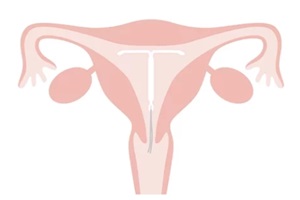 To avoid getting pregnant, an increasing number of women are turning to intrauterine devices (IUDs) for several reasons, including convenience, effectiveness, and duration of use.
To avoid getting pregnant, an increasing number of women are turning to intrauterine devices (IUDs) for several reasons, including convenience, effectiveness, and duration of use.
However, considering that two main types of IUDs are available on the market—hormonal and non-hormonal copper—it can be confusing to determine which is best for your needs.
When considering an IUD, you’ll want to weigh a few key factors: effectiveness rates, potential side effects, duration of use, upfront and long-term costs, desired effects on your menstrual cycle, and your comfort level with the method and available brands.
Doing homework on these aspects will help you find the right solution tailored to your body, lifestyle, and family planning goals.
A Look at Effectiveness
The first significant difference between copper and hormonal IUDs is their failure—or pregnancy rates. Copper IUDs, such as ParaGard, offer near-perfect protection against pregnancy with a failure rate of just 0.8%%. That means approximately eight out of a thousand women will become pregnant over the course of a year with typical copper IUD use.
Hormonal IUDs, such as Mirena, Kyleena, or Liletta, have even lower failure rates, typically less than 0.2%%—or two out of a thousand women getting pregnant per year. This extremely high efficacy means hormonal IUDs offer nearly fail-safe protection.
It is important to keep in mind that the effectiveness of an IUD can change at different points over its lifespan. For example, hormonal IUDs only reach peak performance about a week after being inserted.
In contrast, copper IUDs start working immediately after placement. However, the latter may have slightly higher failure rates toward the end of their approved usage window.
Evaluating Potential Side Effects
Copper and hormonal IUDs also differ in their potential effects on the body. Copper IUDs frequently lead to more significant changes in menstrual bleeding.
For example, many women report their periods getting substantially heavier and more painful with a copper device. Cramps, longer periods, spotting, and mid-cycle bleeding are also common complaints.
In contrast, women using hormonal IUDs commonly report lighter, shorter periods, and may even achieve amenorrhea (absence of menstruation periods) over time.
After the first 3-6 months, users usually see dramatic improvements in flow amount and enjoy shorter cycle lengths. Mood changes, headaches, acne, and breast tenderness are reported; however, most symptoms resolve within the first 90 days for most patients.
Checking Duration of Use
 When considering the duration of contraceptive coverage, copper wins out over hormonal IUDs. A single copper IUD can protect from pregnancy for up to 10 years.
When considering the duration of contraceptive coverage, copper wins out over hormonal IUDs. A single copper IUD can protect from pregnancy for up to 10 years.
Given that the device costs up to $1,500 upfront, its longevity makes it much less expensive than other birth control options based on the usage cost per year.
Meanwhile, hormonal IUDs last 3-7 years, depending on the brand. While replacing the devices more often involves a repeat insertion procedure and purchase cost, some women prefer shorter-acting contraception in case their needs change and many women choose the hormonal IUDs for the favorable effects on their menstrual cycles.
Assessing Upfront and Long-Term Costs
Both copper and hormonal options range from $500 to $1,500 before insurance steps in. However, most providers cover all or some insertion device fees, making IUDs surprisingly affordable. Depending on your specific health plan—and deductible status—you may pay little to nothing out-of-pocket.
When considering how long you’ll be able to use it, a hormonal IUD often works out to be less expensive in light of frequent insurance benefits and lower upfront costs. Just be sure to keep in mind that you’ll have to remove or replace it every three to seven years.
Controlling Your Menstrual Cycle
If regulating your monthly flow is a top priority, then a hormonal IUD offers superior relief. The steady release of progestin thins the uterine lining and often stops ovulation altogether. This leads many users to shorter, lighter, or absent periods after the first 90 days.
For heavy or painful menstrual cycles, Mirena, Kyleena, Liletta, or Skyla can provide marked improvement. This is a significant difference over the copper IUD which is reported to frequently make cycles heavier and crampier for most women.
Reviewing Your Comfort Level
Another factor to consider is how comfortable you are with the idea of an IUD. If having a foreign device implanted in your body seems unpleasant, then additional hormones from an IUD may sound equally unappealing.
However, the low systemic absorption of hormone and steady-release dosing reduces the risk of side effects compared with other hormonal options.
 Doing your homework on brands, dimensions, hormone levels, duration of use, and insertion procedures will shed light on the best selection for your comfort.
Doing your homework on brands, dimensions, hormone levels, duration of use, and insertion procedures will shed light on the best selection for your comfort.
Don’t hesitate to ask your OBGYN, too. Every patient has unique needs and perspectives, so open conversations are essential in making an informed decision.
Turn to Raleigh Gynecology & Wellness for Assistance with Choosing the Right IUD for You
Deciding between copper and hormonal IUDs is a matter of determining what is most important for your lifestyle and where you see your choices heading in the near future. If you are still undecided about IUD options, consult an experienced OBGYN at Raleigh Gynecology & Wellness for guidance.
With a comprehensive review of your history and an open discussion around your goals and tolerances, an expert can help you identify the ideal IUD.
Raleigh Gynecology & Wellness offers exceptional insight into all contraception choices while supporting your journey toward confident family planning. Contact us today at (919) 636-6670 or online to schedule a consultation.
